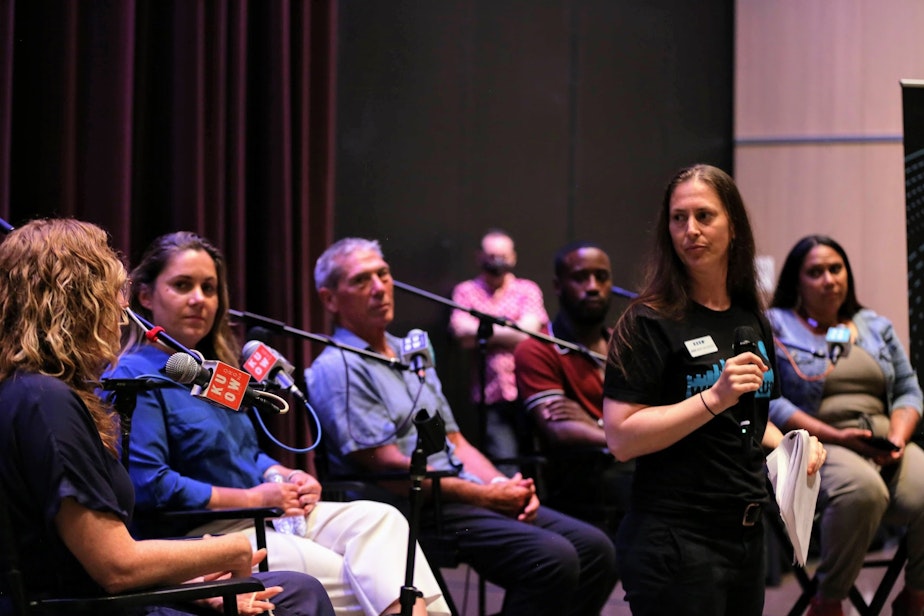A community conversation about Seattle and the overdose crisis

King County is experiencing a record amount of overdose deaths. The number of residents who died from a drug overdose has doubled over the past five years.
KUOW invited a panel of experts in the field of addiction and recovery to share their on-the-ground experience and answer your questions about this public health crisis. Here are a few takeaways from that conversation.
The addiction trajectory of fentanyl is much quicker than it is for many other drugs. Because it is so potent and shorter acting, people become addicted to it faster than they would become addicted to a drug like heroin, for instance.
Johnny Ohta, a chemical dependency counselor who works with youth at Ryther, explained how young people might suddenly find themselves addicted to the synthetic opioid.
"All of a sudden, out of nowhere, these kids are smoking weed, drinking, going to parties, and bam — they are crying in the basement, in withdrawal," Ohta said. "And it's just like that, like in weeks. And some of them ... could sneak around for like six months. But ... a lot of them, they can't even sneak around for that long."
Dr. Taryn Hansen, a family medicine specialist, said she hears from many youth struggling with fentanyl addictions that they wish public health messaging placed more emphasis on how difficult it is to quit the drug.
"'I wish I had known it was going to be this hard to stop, [that] it was going to take over this much of my life, and that it would change really everything for me,'” she described them as saying.
RELATED: A Seattle teen quit smoking fentanyl. Every morning he thanks God he’s alive
Access to secure housing and harm reduction — an approach that emphasizes safer drug usage over abstaining from use altogether — are seen as the most important factors to bring down overdose numbers.
"The harm reduction approach is to say, 'Okay, you're using heroin. If you use a dirty needle, you can have major infections. So how about a clean needle? If you would like one, here it is,'" explained KUOW reporter Anna Boiko-Weyrauch. "Or for example, you probably see this all over the place, free condoms instead of no sex."
Malika Lamont is the program director for the grassroots organization VOCAL-WA. As part of its efforts, the group advocates for safe consumption spaces for people with an addiction.
“I think that a lot of folks have this perception that harm reduction is a free-for-all — it's not," Lamont said. "Harm reduction means that we meet people where they are and we engage with them — a person has autonomy, and they're self-determined, and we work together collaboratively ... we recognize the harms and of all of the intersections of these systems: racism, classism, you know, all of these different things.”
RELATED: Fentanyl is a great drug for cartels. But those blue pills are killing King County
Having a loved one with an addiction can be a difficult experience. But keeping a close relationship and good communication are skills that families can develop, and skills that can help their loved ones eventually accept treatment.
"Being willing to spend time with your family member, or have conversations that are not centered on drug use all the time," are strategies that Lara Okoloko, a therapist and clinical social worker, advises families implement.
Okoloko also recommends, "learning how to communicate more directly but not having to use anger, for example, to set limits or to have boundaries, that that doesn't have to be delivered with anger.”
Resource sheet and additional information on drug overdoses in King County:




